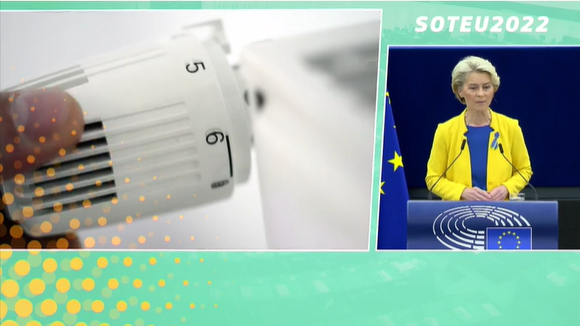The 2022 State of the European Union (SOTEU) speech might have been European Commission President’s most important official address, in times when millions in our society are forced to choose between paying rent, heating, and eating. The need to distribute fairly energy-producing companies’ extraordinary record profits, cap prices, and roll out renewables for the direct benefit of individual households, the call to introduce more flexibility to EU countries on debt reduction, the support to Ukraine in hosting refugees, and its reconstruction are reasonable ways forward. However, we also know that the devil is in the detail. Let’s avoid wasting time starting the process from scratch and build on approaches that work.
REPower people in a just way relying on models that deliver
When Housing Europe’s member, the Association of Flemish Housing Companies (VVH) announced the investment of €231 million over 4 years, to install 650 000 solar panels on the roofs of social housing, directly reducing the bills of tenants, we knew that the ASTER project was a lot more than a lofty ambition. Almost two years after the project was officially signed, 44 Flemish social housing providers continue to actively and structurally contribute to combating energy poverty. Scaling up similar projects and very importantly, facilitating administrative steps should be the ambition of the EU.
Today, we heard President Ursula von der Leyen saying that “in these times, profits must be shared and channelled to those who need it the most”, as well as that an upcoming proposal will raise more than 140 billion euros of excessive energy profits “for Member States to cushion the blow directly”.
This winter, understanding and controlling our energy use will be tremendously important. Member States should build movements, not only of fire-fighters as announced but also dedicated professionals and volunteers who reach out to citizens directly in people’s homes with advice on reducing consumption and bills. Ongoing work on the ground is already showing results. These windfall profits must be channelled to ensure they support this work to directly shield citizens for instance via the European Climate Fund.
Europeans in solidarity with Ukraine while facing an endless housing crisis
Since the start of the war, public, cooperative, and social housing actors have been gearing up to deliver a dignified response to the crisis. When the migration crisis in 2015 emerged, Lieven de Keys social housing provider in the Netherlands showed in practice how they could answer the housing needs of both young Dutch and Syrians with the Startblok Riekerhaven , united by the same goal: a good start in Amsterdam. So did millions of Europeans, welcoming Ukrainian refugees to their homes. While Housing Europe supports a “legally binding mechanism that ensures solidarity”, we also believe that a mid- and long-term strategy must include a drastic increase in new social and affordable housing to meet existing and new demand.
The new EU package supporting the rehabilitation of schools is crucial however, reports in July this year announced that 44.8 million square meters of residential buildings were destroyed or damaged re-meaning that the question of how to ensure people have homes to return to in Ukraine cannot be overlooked. Ukrainian reconstruction could draw from #Housing2030. In a single report, Housing Europe, UNECE, and UN-Habitat compiled the experience of over 100 researchers, policymakers, and housing providers on how housing can be delivered affordably and sustainably.
Change of terminology: boosting housing affordability is an investment, not an expenditure
In her speech, President Von der Leyen called for fiscal rules that “are fit for the challenges of this decade” and “fiscal rules that allow for strategic investment, while safeguarding fiscal sustainability”. Housing youth, the elderly, single parents, migrants, and providing a roof to the homeless certainly tick these boxes. In October, Housing Europe members will be expecting to see EU’s new ideas for better economic governance, surely any meaningful ‘update’ must reinforce the right to housing, the city, and to energy.
Paying tribute to former European Parliament President Sassoli, we would also quote him by saying that “democracy has not gone out of fashion, but it must update itself in order to keep improving people’s lives.” Safe, warm, and affordable housing is where everything starts.
